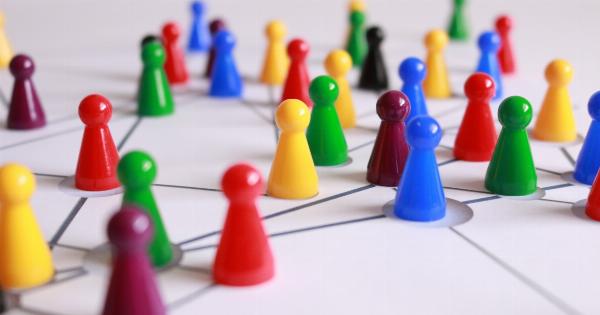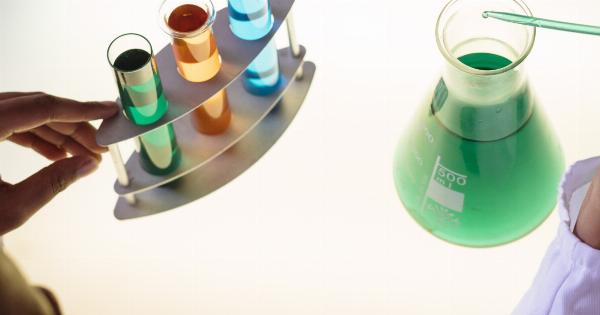Love is a beautiful feeling that we all long for. Falling in love is an experience that is hard to describe with words. It is a feeling that consumes us, makes us feel happy, energized, and peaceful all at once.
However, have you ever wondered why we fall in love with someone specifically? Why does someone instantly connect with us, while others do not? The answer to these questions lies in the science of love, a fascinating subject that explores the chemical, neurological, and psychological processes that occur in our brain when we fall in love.
The Chemistry of Love
Love is not just a feeling; it is a chemical process that occurs in our brains. When we fall in love, our brain releases hormones such as dopamine, oxytocin, and serotonin. Dopamine is the hormone responsible for feelings of pleasure and excitement.
It is the same hormone that is released when we eat our favorite food or receive a reward. Oxytocin is known as the love hormone because it is responsible for feelings of intimacy, trust, and bonding. Lastly, serotonin is the hormone responsible for regulating our mood.
It creates the feeling of happiness and contentment we experience when we are in love.
The Neurobiology of Love
The neurobiology of love explores the neural pathways in our brain that are activated when we fall in love. Falling in love activates the same parts of the brain that are involved in the reward system.
These parts of the brain are responsible for pleasure, motivation, and reinforcement. The reward system is activated when we experience something pleasurable, such as eating our favorite food or experiencing sexual pleasure.
The Psychology of Love
The psychology of love explores the different theories that explain why we fall in love with someone. There are various theories, but the most popular one is the attachment theory.
The attachment theory suggests that we are attracted to people who provide us with a sense of security and comfort. It is based on the idea that humans have an innate need for attachment and bonding.
The Role of Physical Attraction
Physical attraction plays a significant role in why we fall in love with someone. Physical attraction is the initial spark that draws us towards someone. It is the first thing we notice when we meet someone.
Studies have shown that men are more attracted to women with a waist-to-hip ratio of 0.7. On the other hand, women are attracted to men with broad shoulders and a slim waist. Physical attraction is not always about looks, but it can also be about the way someone moves, speaks, or smells.
The Importance of Similarities
Similarities play a crucial role in why we fall in love with someone. We tend to be attracted to people who share similar traits or interests as us. It creates a feeling of connection and familiarity, making it easier for us to bond with someone.
Studies have shown that couples who share similar values, attitudes, and beliefs are more likely to have a successful and long-lasting relationship.
The Impact of Personality
Personality is the sum of the traits, behaviors, and characteristics that make us who we are. It plays a significant role in why we fall in love with someone. Studies have shown that people are attracted to partners who have a similar personality to them.
It creates a feeling of compatibility and harmony, making it easier for us to bond with someone.
The Power of Timing
Timing is everything when it comes to falling in love. We tend to fall in love with someone when we are in the right emotional state and life situation. It is why we hear so many stories of people meeting their soulmate when they least expected it.
When we are in the right emotional state, we are more open, vulnerable, and receptive to love. It is why timing plays such a crucial role in the process of falling in love.
The Role of Chemistry, Biology, and Psychology in Falling in Love
Falling in love is a complex process that involves a combination of chemistry, biology, and psychology. It explains why we fall in love with someone specific and not with everyone we meet.
The chemical, neurological, and psychological processes that occur in our brain when we fall in love create a feeling of pleasure, intimacy, trust, and bonding. The right combination of physical attraction, similarities, personality, and timing can lead to a beautiful and lasting relationship.
The Effects of Love on Our Health
Love is not only a beautiful feeling, but it also has a positive effect on our health. Falling in love can release endorphins, which are natural painkillers that reduce stress and anxiety.
It can also lower our blood pressure, boost our immune system, and improve our overall well-being. Being in a happy and loving relationship can lead to a longer and healthier life.
The Bottom Line
The science of love is a fascinating subject that explores the chemical, neurological, and psychological processes that occur in our brains when we fall in love.
Falling in love is not just a feeling; it is a complex process that involves a combination of chemistry, biology, and psychology. The right combination of physical attraction, similarities, personality, and timing can lead to a beautiful and lasting relationship that can have positive effects on our health and well-being.





























